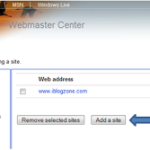Social media can get as big and important as it wants to, but some companies just won’t get it. While some businesses all over the world are scrambling to get their social media act right, others’ don’t even take the first step. Even if they did, they couldn’t care less. In spite of the raging popularity of social media, here are at least six lazy things companies do on social media that could all make it to the losers’ hall of fame:
1. Assuming LinkedIn is a Fancy Rolodex
 With more than 225 million members from about 200 countries all over the world, calling it a Rolodex is like calling the Stonehenge just another bunch of rocks. LinkedIn is one social media network that businesses can benefit in a variety of ways.
With more than 225 million members from about 200 countries all over the world, calling it a Rolodex is like calling the Stonehenge just another bunch of rocks. LinkedIn is one social media network that businesses can benefit in a variety of ways.
Post jobs (drill down to specifics as per demographics, location, experience, etc.) and go find some really active candidates. Businesses can also check on each applicant’s resume, LinkedIn activity, portfolio, previous jobs, endorsements, and recommendations. Candidates can dress up their resume for all they’re worth but what you see on LinkedIn profiles is almost as real as it gets (except for a well-written profile description, which could be dressed up of course).
Use LinkedIn emails to connect to influencers, bloggers, new clients, potential hires, vendors, previous clients, and possibly anything else businesses will find need for. Think of this as email on steroids.
Tap into the power of communities by diving into LinkedIn Groups, which exist in every possible – but mostly professional – niche. These are great places to collaborate, share, and establish your thought leadership while finding a way to help and contribute.
Can your Rolodex do that for you?
2. Thinking of Twitter and Facebook as Flea Markets
Agreed, Twitter and Facebook might not suit each and every business, and neither of these social behemoths was built from a business interaction standpoint. Yet, both Twitter and Facebook have reach! What has reach has potential. It’s just that you need to realign what you communicate, share, and do on both Twitter and Facebook.
Distribute your content on these two networks. Engage with your fans and followers. Find a way to ask stakeholders in your industry questions that surveys don’t manage to get. Tap into the possibility that your content, and consequently your brand, can go viral.
Don’t make the mistake of taking Facebook or Twitter to be “hangouts” for a particular demographic. There are many one-to-one conversations happening on these platforms that are of very specific concern to the individual or brands involved, and which may result in or be the result of purely business transactions. What’s more, these conversations are happening in full view of potential followers, brand advocates, customers and stakeholders. This is nothing less than a miracle compared to the one-to-many and back-and-forth communication model predominant in traditional media.
3. Ignoring Reviews
Every piece of content written about your business affects you. Reviews are by far the single-most deciding factor for the information digging, budget conscious, perennially worried, and highly skeptical customers we have today. Google calls it the Zero Moment of Truth and it certainly wouldn’t take the trouble to publish a book on the subject if not for customers who fire their mobile devices at products in the aisles of Walmart before picking up stuff.
Most reviews on the web aren’t even paid for. They come out and about as a result of happiness, frustration, or due to feelings “somewhere in between.” Social media allows you to manage customer perceptions formed due to these reviews.
Yelp seals the fate of restaurants in nearly every American city. Savvy travelers rarely book a hotel without going through Oyster’s Photo Fakeouts. The potential of tech startups is laid bare by Mashable and Silicon Alley Insider. You get the drift, don’t you?
Great reviews, which can also take the form of videos by the way, are a strong deciding factor for your brand. No matter how big or small you are, the things people say about your brand and service affects your bottom line.
4. Not Updating Actively
 “If we spend all our time on social media, who will run the business?” Have you heard that before? Of course you have. You and only you run the business. Social media updates are a part of your overall marketing strategy. They are not something to be done “on the side.”
“If we spend all our time on social media, who will run the business?” Have you heard that before? Of course you have. You and only you run the business. Social media updates are a part of your overall marketing strategy. They are not something to be done “on the side.”
If you were too small a business, you’d ideally do it yourself. Alternatively, you can hire full-time or part-time help. Another risk-free way of getting help to manage your social media is to outsource your social media to experts (who exist despite popular hype). There are a million things you routinely have to do to run your business but if marketing (including content and social media) isn’t a part of your daily activities, may I ask what is?
Social media management is “business.”
5. Not Responding to Questions or Comments
“We’re too big to respond to each and every silly question,” is another gripe at large organizations. Correction: you “were” too big. You won’t be big any more if you continue to ignore questions and comments – silly or otherwise – on your social networks. If you do, your downfall begins now.
Every salesperson is taught early in their respective careers that no question is stupid. Every objection is a question that gets closer to the sale. Social media is no different. Random questions and comments that surface on Facebook, Twitter, Google+ and elsewhere are all getting each of those social media users, fans and followers closer to sale. Ignore them and your competition (who is paying attention too) will happily lap them up.
And oh, your ignorance is now public.
6. Disregarding the Numbers
Numbers (metrics in other words) aren’t for geeks. What’s the point in running if you have no idea what you’re running towards and how fast you are going? You can jump into social media with as much intensity as you like, but without analytics and reports to guide you through, you are swimming straight to the center of the earth.
Smart companies measure their efforts. They want to know who visits their websites, how long visitors spend there, what they do, where they go from there, etc. It always pays to understand what happens to your product landing pages, email campaigns, social media updates, and blog posts.
If numbers are for geeks, the geek shall inherit the Earth.
Are you ignoring any of these important things to do when it comes to social media? Is your firm being lazy or lively? Are you letting the big elephant pass?
image credit: tech.net









Comments are closed.